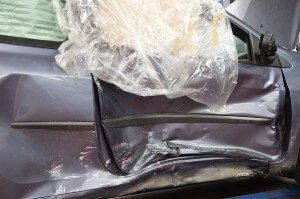 If your car gets totaled in an accident and the value is less that what is currently owed on your loan, that balance would need to be paid. This balance could be quite costly, ranging in the thousands of dollars.
If your car gets totaled in an accident and the value is less that what is currently owed on your loan, that balance would need to be paid. This balance could be quite costly, ranging in the thousands of dollars.
This is where gap insurance could be beneficial. This optional type of auto protection is often overlooked and not taken seriously. Even the most careful drivers can find themselves in a situation where another driver acts negligently, so not having gap insurance, especially if the car is new or lightly used, could turn an already worse situation into a financial disaster.
Below, our Windsor car accident lawyers outline how gap insurance works and why it could be beneficial to purchase. If you need help with your car accident claim, reach out to request a free case evaluation. You are not obligated to retain our services and there are no upfront fees unless you obtain a recovery.
What is Gap Insurance and How Does it Work?
If your car is declared a total loss after a crash, gap insurance would provide a benefit that is equal to the difference between what you owe on your car and what your insurance company pays you for the car. It is important to note that a loaned or leased car is not considered totaled when it is damaged in an accident. It is deemed totaled when the insurance company decides it is not worth fixing.
The insurance company will pay you what your car is worth at the time of the accident if you have purchased adequate coverage. Gap insurance can help pay off your loan or lease if you owe more on the loan or lease than the car’s actual cash value in the marketplace. Gap insurance could also protect you if your car is stolen, covering the gap between what the car is worth and what you owe.
When Gap Insurance Is Needed
Gap insurance can often be purchased from a car dealership at the same time a new car is bought. However, when you lease a car or do not make a down payment on a new car, the lender will require gap insurance. Other situations when you should consider purchasing gap insurance include:
- Negative equity exists from the last car loan into the new car loan
- Car depreciated in value to be less than what is owed on the loan
- The car loan lasts for 60 months or longer
While not everyone requires gap insurance, it can offer financial security. You would not have to pay out of pocket if your insurer provides you with a compensation amount that is less that what is owed.
Difference Between Gap Insurance and Liability Insurance
While gap insurance helps cover loaned or leased cars that are totaled in the event of an accident, liability insurance helps cover the other driver’s medical expenses if you caused the crash.
Under Ontario law, every driver in the province must have a minimum of $200,000 in third-party liability coverage if an accident results in property damage, injury or death. Other mandatory coverages include:
- Statutory accidents benefit coverage – This provides you with medical and income replacement benefits if injured in a crash regardless of fault.
- Direct compensation property damage coverage – This covers damage to your car and personal items if you are in an accident that was not your fault.
- Uninsured automobile coverage – This protects you and your loved ones if injured or killed by an uninsured driver or hit-and-run driver. If the uninsured driver who caused the crash is identified, it could cover damage to your car.
Optional coverage available for loss or damage to your car include comprehensive coverage, which covers damages not caused from a crash (theft, fire, earthquakes, windstorms, hail, falling objects, etc.) and collision coverage, which covers damages from an accident with another car or object.
We Fight for Maximum Compensation
Being in a car accident can already be an overwhelming ordeal. At Greg Monforton & Partners, we have more than three decades of experience advocating for injured victims, from conducting detailed accident investigations to dealing with insurance companies on their behalf.
Our firm operates on a contingency fee basis, so you pay us nothing up front unless we help you obtain compensation. We also offer free initial consultations, so there is no risk in calling us to learn about your legal options.
Call (866) 320-4770 to get started today.

